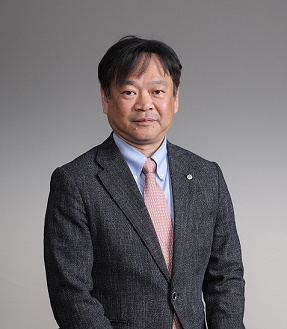Dean’s Message
Dean’s Message
Dean Naoki Taguchi

The Graduate School of Business and the School of Business at Osaka Metropolitan University were established in April 2022 through the merger of its predecessors, the Graduate School of Business and the Faculty of Business at Osaka City University, and the Master of Business Administration program of the Graduate School of Economics and the School of Management of the College of Sustainable System Sciences at Osaka Prefecture University. However, the School of Business traces its beginnings back to 1880 with the founding of the Osaka Commercial Training Institute, and it has a history of over 140 years. The Osaka Commercial Trading Institute was founded by business leaders in Osaka at the time, including Tomoatsu Godai, known as the “father of the modern Osaka economy,” who argued that to compete with the developed countries of Europe and the U.S., merchants also needed to learn. It was Japan’s second commercial school after the commercial school in Tokyo. It then developed into Osaka City Commercial School and Osaka University of Commerce in the pre-WWII educational system before becoming Osaka City University in 1949, when the “Faculty of Business” was established. With the inauguration of the Graduate School of Business in 1953, Osaka City University began to provide the highest level of academic education. After being reorganized into Osaka Metropolitan University in 2022, it continues as it is today. Currently, a statue of Tomoatsu Godai has been erected in front of the School of Business building. This symbolizes that the Graduate School of Business and the School of Business have the most important position in Osaka Metropolitan University.
The educational policy of the Graduate School of Business and the School of Business is “practical learning that encourages thinking.” Students learn both the theory and practice of business and society. The most distinctive feature of the Graduate School of Business and the School of Business is that students are provided opportunities for practical learning aimed at improving their ability to identify and resolve business and social issues on their own through interactive research, study, and practice that combines theory and reality. At the School of Business, in addition to the Department of Business, the Department of Public Management was newly established in 2018. Since then, a two-department system has been in operation. The greatest feature of the School of Business is that it allows students to not only learn and study corporate activities and business, but also to observe regional, industrial, economic, and social trends through corporate activities and business. Students can also learn and study trends in companies, communities, and society in a comprehensive manner through research on the regional characteristics and social aspects of companies and the management of non-profit organizations. At the Graduate School of Business, in addition to the Researcher Development Program and the Asia Business Research Program aimed at developing human resources who will strengthen economic partnerships between Japan and other Asian countries, the CSV (Creating Shared Value) Management Research Program will be launched in 2025, with the aim of developing human resources who will study management concepts and methods that aim for social and economic value creation and who can contribute to building a prosperous society in a sustainable manner, regardless of whether they work at for-profit, non-profit, or government organizations. Today, with stakeholders who make up the community and society calling for value co-creation and the construction of a sustainable society, I believe that the education and research system at the Graduate School of Business and the School of Business has become responsive to the demands of the times.
As represented by the terms “AI (Artificial Intelligence)” and “DX (Digital Transformation),” the evolution of digital technology has a significant impact on the way society functions and the way we live our lives. Standard routine work and thinking will increasingly be replaced by these technologies. We will provide an educational and research environment that cultivates the practical abilities and creativity to perceive, identify, and resolve issues facing the real world, using human sensibility, intellect, and reason, while effectively handling these technologies. Under the educational policy of “practical learning that encourages thinking,” we look forward to welcoming you to the Graduate School of Business and the School of Business, where tradition and innovation exist in harmony.